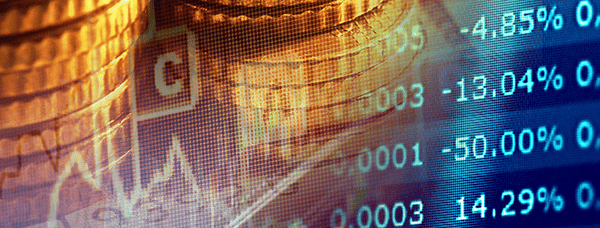The second half of July was a positive one for global markets, with most indices producing decent gains over this period. Investor sentiment was boosted at the beginning of the period by an easing in expectations that the US Federal Reserve would announce a 1% rise in interest rates, which were proved correct with the eventual decision to raise rates by 0.75%. This was followed by optimism over a more gradual pace of future increases. Corporate earnings updates that have been broadly better than expected also helped performance, despite a notable profit warning from retail giant Walmart. However, there continued to be concerns over inflation, a slowdown in global economic growth and energy supplies, the latter notably in Europe.
Economic Update
UK inflation, as measured by the Consumer Price Index (CPI), rose from 9.1% in May to 9.4% in June, the highest rate since February 1982 and above the slightly smaller forecasted rise to 9.3%. The Office for National Statistics (ONS) said the main drivers of the rise in inflation was the 42% year-on-year increase in petrol prices and a near 10% gain in food prices. The cost of food is increasing at its fastest rate since March 2009, with notable rises in the prices of milk, cheese and eggs. In addition, the prices charged by factories increased 16.5%, the most since September 1977. The rise in inflation is also impacting on British government borrowing, which is the difference between spending and tax income. The British government borrowed £22.9 billion in June, £4.1 billion higher than a year earlier. This was driven higher by the government’s interest bill, which was £19.4 billion, more than double the previous record, pushing borrowing for the month up to the second-highest June level since records began in 1993. A closely watched business survey showed that activity in Britain’s private sector fell to its slowest pace in 17 months.
British unemployment was 3.8% in the three months to May, despite being forecasted to be slightly higher at 3.9%. For the three months to May, the ONS said growth in regular pay excluding bonuses rose 4.3%, but when adjusted for inflation it was 2.8% lower, the biggest fall in records going back to 2001. Employee’s average total pay, which includes bonuses, eased from 6.8% to 6.2%, with many employers looking to pay bonuses to attract or retain staff due to the shortage of workers, although this still represented a 0.9% fall when adjusted for inflation. British retail sales fell slightly in June, as drivers reduced spending due to record fuel prices, although consumers cut back on shopping less than expected. Research firm GfK said British consumer confidence remained at its 48-year low in July, as households faced surging inflation and higher interest rates.
The US Federal Reserve (Fed) announced a second consecutive 0.75% increase in its benchmark interest rate as it continued its aggressive approach to combatting soaring inflation. The Fed’s benchmark rate was increased to a target range of between 2.25% and 2.5%, whilst the accompanying statement said it “anticipates that ongoing increases in the target range will be appropriate”. The US economy entered a technical recession (defined as two consecutive quarters of negative growth) after the Commerce Department said there was further contraction in the second quarter having previously shrunk in the first three months of the year. Furthermore, S&P Global said that activity in the US private sector contracted in July for the first time in two years, as a sharp slowdown in the service sector more than offset continued modest growth in manufacturing.
With concerns over surging inflation outweighing worries about growth, the European Central Bank (ECB) raised interest rates by more than expected, increasing its deposit rate by 0.5% to 0%, double the amount it had indicated at its previous meeting. This was the ECB’s first increase since 2011, whilst the deposit rate had been in negative territory since 2014. Business survey data indicated that Eurozone private sector activity unexpectedly contracted in July, due to an accelerating downturn in manufacturing whilst the service sector barely grew as rising costs led to consumers reducing their expenditure. The preliminary estimate for inflation in the Eurozone showed consumer price growth from 8.6% in June to another record high of 8.9% in July.
Market Update
UK markets posted gains in the period 15 to 31 July, led by strong outperformance from the FTSE 250 Index. UK indices were boosted by positive earnings reports, despite concerns over an economic slowdown. The FTSE 100 also rose, benefiting from its large exposure to oil & gas and mining stocks. There were gains across other developed markets, with the US S&P 500 a strong performer, which also benefited from broadly positive updates. There were smaller gains for broad Asian and Global Emerging Markets, where China was a notable underperformer as it fell during the period. In fixed income, there were also gains for both gilts and corporate bonds.
We generally recommend that you hold investments for the medium to long-term, which we would view as being for five years or more. This market commentary provides an insight into the current factors that are affecting short-term global returns, but should not be viewed as a basis for making long-term investment decisions. You should consider your own investment goals and timeframes before making any such investment decisions. If you do have any concerns about where your money is invested, please contact your Origen adviser.
CA8438 Exp 08/23.











